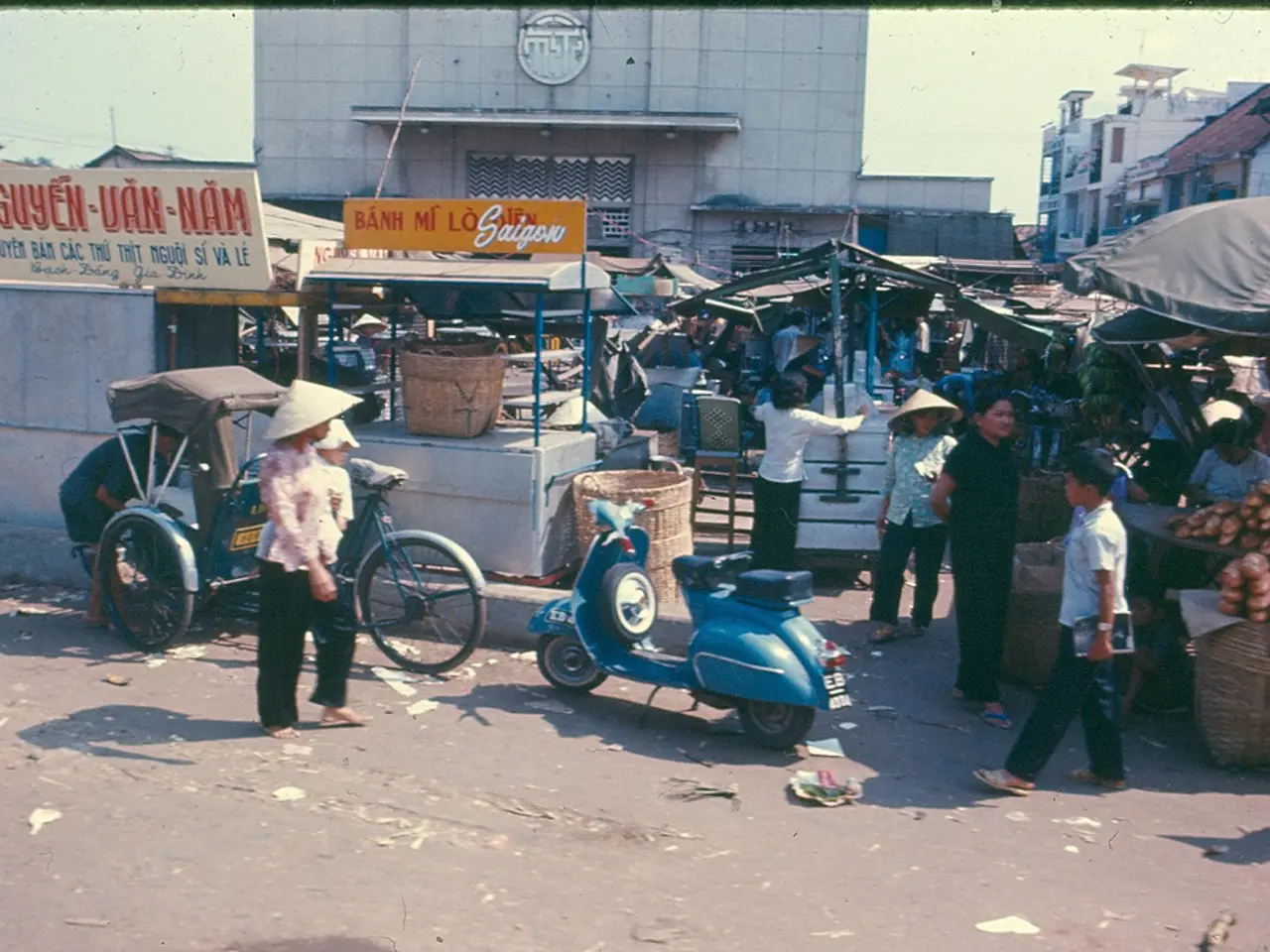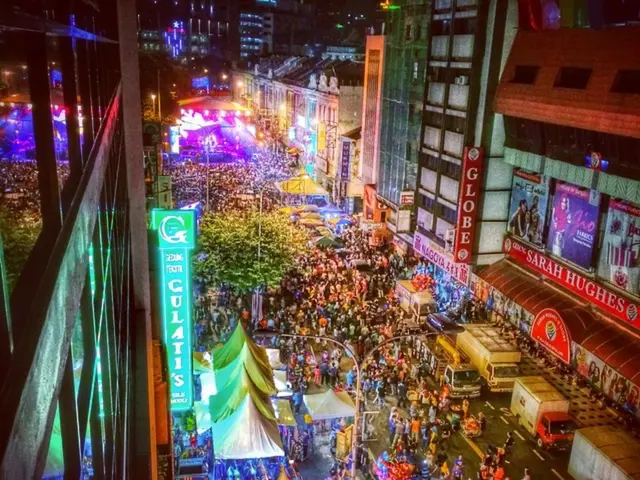Intensifying trash troubles in Kreuzberg: A surge in fast-food consumption amplifying bin conundrums in Berlin
In the bustling heart of Berlin's Kreuzberg district, a popular fast-food eatery named Munchies has become a central point of discussion due to a growing trash problem in the area, particularly around Bergmannkiez.
Munchies, known for its Texas-inspired halal tacos and burgers, draws crowds of up to 1,000 customers daily, according to the business owners. However, this high footfall has led to an increase in littering, with disposable coffee cups, burger boxes, and paper napkins strewn along the streets.
The district has taken steps to address the issue, increasing littering fines to €55 and ramping up enforcement. Yet, long-term solutions to prevent waste remain elusive.
Residents have expressed frustration over the rise in littering, and heated debates about the trash problem have been ongoing, both online and within the community. Employees at Munchies have even experienced threats and vandalism, including garbage being thrown into the store and faeces being smeared around it.
Despite these challenges, Munchies is taking steps to address the trash problem. The eatery is providing bins and sending staff to clean the surrounding area. However, Germany's new packaging laws, which encourage reusable containers, have not been enforced at Munchies due to lack of space for hygienic cleaning.
The Friedrichshain-Kreuzberg district confirms that Munchies is meeting its legal obligations. Yet, the real issue may lie in personal responsibility, as existing public trash cans are often ignored, according to the Berliner Stadtreinigung (BSR).
Looking beyond Munchies, urban areas in Berlin, including busy places like Alexanderplatz, face problems with littering, garbage overflow, and associated issues like homelessness and public disorder. Common urban trash management strategies involve regular street cleaning, timely garbage can emptying, and public awareness campaigns.
A sustainable solution evident in Berlin's café culture is encouraging reusable containers to reduce disposable waste. Similar initiatives could mitigate littering at fast-food outlets like Munchies.
Community engagement, better infrastructure like more accessible trash bins, and enforcement of littering penalties are common urban solutions. Collaboration between local businesses, the district cleaning services, and tenant associations could also help maintain clean surroundings.
While specific data on Kreuzberg or Munchies is limited, these strategies represent plausible ongoing issues and general solutions extrapolated from broader Berlin urban contexts. For precise actionable plans, local community boards or district environmental offices would have the most accurate and up-to-date information.
As Kreuzberg continues to attract a diverse population and thriving businesses, addressing the trash problem is crucial to maintaining the district's livability and appeal.
In the pursuit of a cleaner environment, Munchies might consider implementing sustainable practices from Berlin's café culture, such as encouraging reusable containers to reduce disposable waste. Furthermore, collaborations between Munchies, the local district cleaning services, and tenant associations could help develop a more comprehensive strategy to prevent littering and keep the home-and-garden areas around the eatery tidy, aligning with the principles of environmental-science and promoting a desirable lifestyle.




